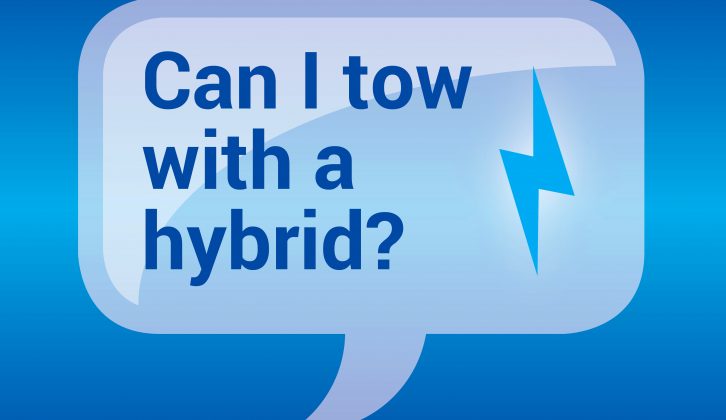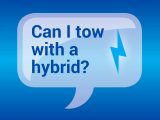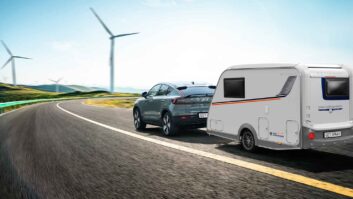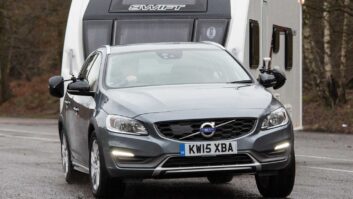What tow car do you have?
For years, diesel has been the default engine choice for many tow car drivers.
And despite concerns over diesel emissions, I think there are good reasons why most caravanners will continue to tow with diesel cars for many years to come.
That said, there are viable alternatives, including hybrid cars. Whether by letter, email or through social media, we’re increasingly being asked: “Can I tow with a hybrid?”
So, can I tow with a hybrid?
The short answer is: “It depends.”
Until fairly recently, most hybrids haven’t required plugging in to recharge, and have usually combined petrol and electric power. They top up their batteries by capturing energy when coasting or under braking.
Generally, this type of hybrid can run as a pure electric vehicle, but only for short distances and at low speeds.
Examples of this style of hybrid include the Toyota Prius, Honda Civic IMA and Hyundai Ioniq (although there are also plug-in versions of the Prius and Ioniq).
Is it homologated for towing?
In the past, these hybrids have not often been homologated for towing, at least not the family hatchback versions.
However, the current Toyota Prius and the Toyota C-HR Hybrid have towing capacities of 725kg – not a lot of use if you own a full-size caravan, but enough for a trailer tent and some micro-caravans.
The larger Toyota RAV4 Hybrid 4×4 has a towing capacity of 1650kg, so it is a viable option for pulling a conventional tourer.
With a kerbweight of 1860kg, including 75kg for the driver, it has an 85% match figure of 1581kg.
Bigger, heavier and more powerful hybrid 4x4s, like the Lexus RX450h and Infiniti QX70, are usually approved for towing.
For example, the Lexus RX450h has a kerbweight of 2175kg and a legal towing limit of 2000kg.
What’s the deal with plug-in hybrids?
As the name suggests, a plug-in hybrid can be recharged by connecting it to an electricity supply.
A regular plug socket will do at a pinch, but if you have a driveway or garage it’s much quicker and more convenient to charge from a dedicated charge point.
The Electric Vehicle Homecharge Scheme (EHVS) makes grants of up to 75% of the cost available for installing a charge point at a domestic property. That brings the cost of a 3kW home charger from Chargemaster down to £279.
The big advantage of a plug-in over a conventional hybrid is that it will go further on electricity alone.
For example, the Mitsubishi Outlander PHEV has a pure electric range of up to 33 miles. So plenty of daily commutes can be completed without any fossil fuel being burned. That’s good for the environment and the driver’s pocket.
This style of hybrid appeals to company car drivers in particular, because the way the official economy and emissions figures are calculated gives these cars exceptionally low emissions figures (just 41g/km of carbon dioxide in the case of the Outlander PHEV).
In reality, the rate of fuel use and emissions will vary significantly depending on how the car is used.
On a long journey, as the battery drains the car relies more and more on its petrol engine, leading to poor fuel economy compared with the equivalent diesel.
Can I tow with a plug-in hybrid?
But to get to the point, can you tow with a plug-in? Yes, in the case of the Mitsubishi Outlander PHEV, which has a legal towing limit of 1500kg.
And yes, if you have deep enough pockets for the Volvo XC90 T8 Twin Engine, which has a legal towing limit of 2400kg.
To give some more examples, the Volkswagen Golf GTE and Passat GTE are also approved for towing, with legal limits of 1500kg and 1600kg respectively.
(Of course, we’d recommend following the 85% or 100% matching guidelines depending on your experience as a tow car driver, even if the legal towing limit exceeds these figures.)
However, if you are thinking of towing with a Hyundai Ioniq Plug-In, the car hasn’t been approved for towing.
These are all petrol-electric plug-ins. The Volvo V60 Plug-In Hybrid is that rare thing, a hybrid with with a diesel engine.
For towing, this works better than a petrol-electric car, as the torque characteristics of the diesel are better suited to pulling a caravan.
However, given the drive to improve local air quality, don’t expect to see many more diesel-electric hybrids coming to market.
Are hybrids good at towing?
In truth, some are better than others. The Volvo XC90 T8 is hugely capable, as it should be at the price, although we found its fuel economy when towing to be disappointing compared with a comparable diesel (we achieved around 16mpg pulling a big twin-axle tourer).
The Range Rover Hybrid we tested back in 2015 also had the capability to match its immense price tag.
Our experience towing with the Outlander PHEV has been more mixed. It’s up to the job, but doesn’t really shine. And the Toyota RAV4 Hybrid we tested at this year’s Tow Car Awards was a disappointment.
As a rule, the trouble with hybrids is that towing drains the battery very quickly, so the car relies more heavily on the internal combustion engine after the first few miles.
And once this happens, fuel economy is likely to be worse than could be achieved by the equivalent diesel.
If you want to tow a caravan with a hybrid, there are cars which are capable of doing so. But if you plan to tow regularly, it pays to choose carefully.
Are hybrids good at towing? Some are better than others









